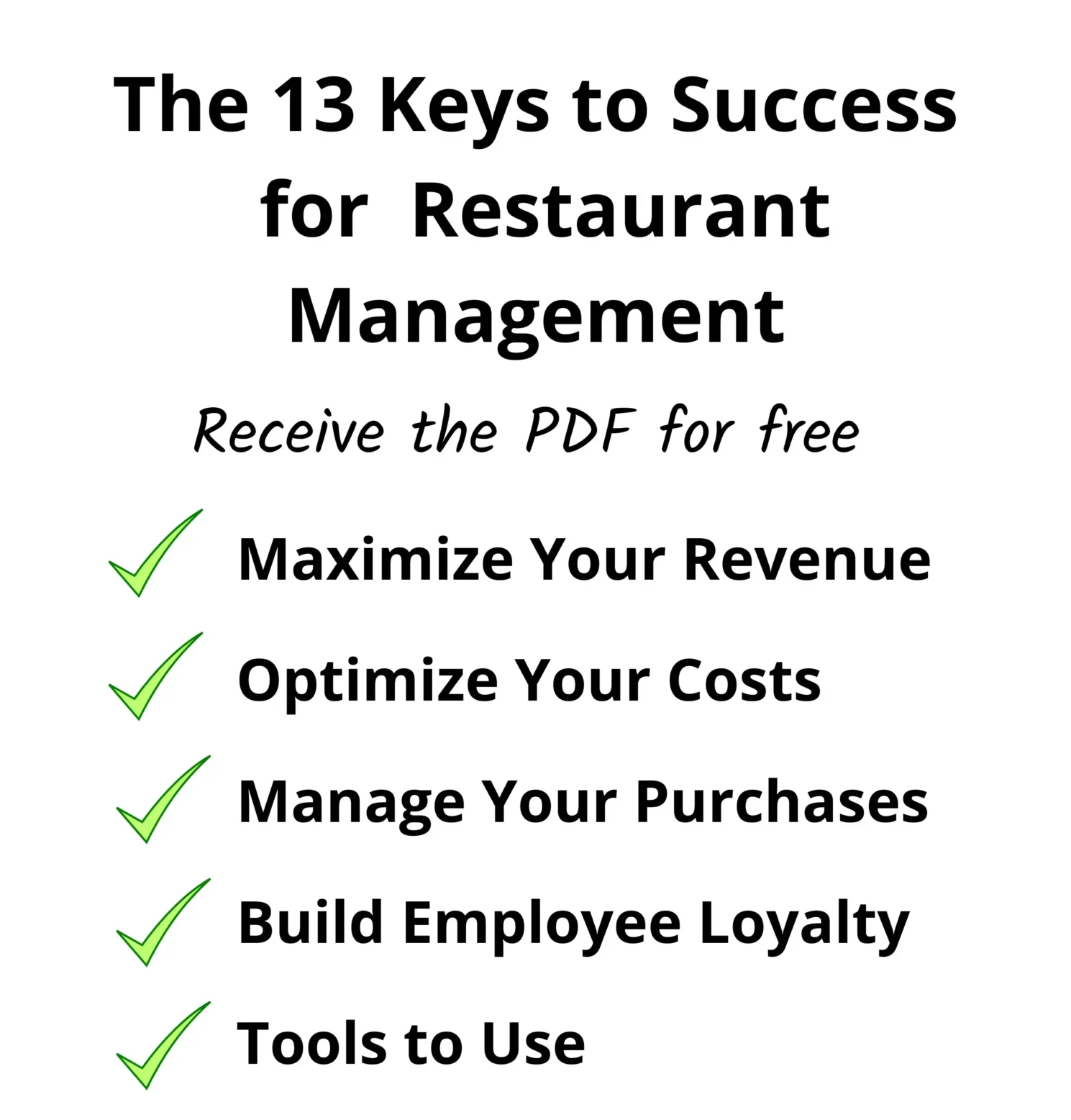
In this article, we will discuss the usefulness and benefits of implementing a performance bonus for employees, how it can benefit each party, help reduce pressure on staff turnover, and in a second step, lead to significant savings in recruitment and training. A majority of establishments in the restaurant industry, and more broadly in the restaurant industry are currently facing a labor shortage. This follows the recent health crisis we have experienced, but also and mainly due to years of poor practices by certain companies that have driven staff to seek opportunities elsewhere.
We are talking about unpaid overtime, a heavy reliance on split shifts (workdays divided into two periods), unrecognized pressure and stress, and of course, low wages.
Fortunately, the severity of this situation is pushing many companies to rethink their human resource management methods and bring forth a slew of good ideas.
Every individual is driven by various motivation factors. In the professional world, we can distinguish between two types: those that are remunerated and those that are not. The former includes salary and bonuses, among others. The latter includes factors like the quality of the working environment and the camaraderie with colleagues.
The foundation of motivation is based on remunerated factors, which are then complemented by the others. Since salaries in the restaurant industry are often low, they are usually supplemented with perks such as meals and tips (which vary depending on the establishment and the team). To complement this base of compensation and create a win-win situation for both employees and the company, a performance bonus can be the ideal solution.
A performance bonus aims to compensate employees based on the achievement of a specific goal. This goal must, of course, be achievable within a given period. The bonus can be a fixed or variable amount depending on the type of objective to be met.
Before implementing this type of compensation, a number of parameters must be defined to outline its conditions for attainment as well as its amount.
The amount can be fixed if the objective is also fixed and does not change. For example, a bonus of $5 for each sale of a bottle of champagne. It will be more variable if the objective is also variable. For instance, in the context of a revenue goal, such as redistributing 4% of the revenue achieved above a certain threshold.
Choosing between a one-time or recurring bonus is equally as important as the objective it aims to fulfill. Perhaps the objective needs to be met only once, or once per year (for example, in a seasonal establishment). It’s also possible that the objective needs to be achieved daily, like a certain level of average ticket, for example.
The next step is to define the time interval for the bonus, which is just as crucial as the objective it aims to achieve. It could take into account what is achieved over a week, a month, a quarter, or even a year. Keep in mind that the larger this period, the more remote the possibility of obtaining the bonus may seem to the staff. In the case of a recurring bonus, it’s also important to consider that its precise calculation will require time.
You will then need to decide if this bonus rewards the collective or the individual. Two philosophies collide: either we assume that each person is responsible for their own work and should be rewarded individually, or we consider it a team effort and that performances are collective, requiring the creation of a bonus pool to be shared at the end of the period. In this latter situation, you’ll need to decide how the distribution works. It could be proportional to working time, the number of shifts worked, or even the employees’ basic salary.
Such a bonus can be either contractual (stated in the employment contract) or customary. It’s recommended to use contractual bonuses only if their parameters (objective, duration, amount) are not subject to change over time. You need to be confident in your decisions. Otherwise, a customary bonus might be more appropriate as it’s more flexible and adaptable.
Once all the preceding parameters are defined, you’ll need to estimate a realistic amount that each staff member can expect to earn. This amount should still be significant enough to engage everyone.
To attempt to reduce staff turnover, it’s possible to exclude individuals still in their trial period from obtaining this bonus. This can distribute a larger amount to the remaining staff or reduce the bonus’s cost. In this situation, it could also represent a potential raise for a person who has completed their trial period.
When all the above parameters have been defined, you’ll need to know when and how to implement it.
It’s highly recommended to have excellent communication with the staff so that everyone understands the rules and stakes of awarding this bonus. The idea is to avoid unnecessary disappointment when a few additional explanations could prevent misunderstandings.
You’ll need to plan the implementation of the bonus at an appropriate time that aligns with each of the bonus parameters and doesn’t affect (or affects as minimally as possible) the normal operations of the company.
Such bonuses can help your staff maintain high motivation and improve their compensation, which they may not find commensurate with their expectations given their daily workload.
From an employer’s standpoint, it’s about investing intelligently in their staff and sharing success in order to reach the heights envisioned by the company and its investors.
Everything you need to optimize your margins. Articles, tools, training, and much more. Sign up for the newsletter to receive all the latest Resto Clover news.






Your email address